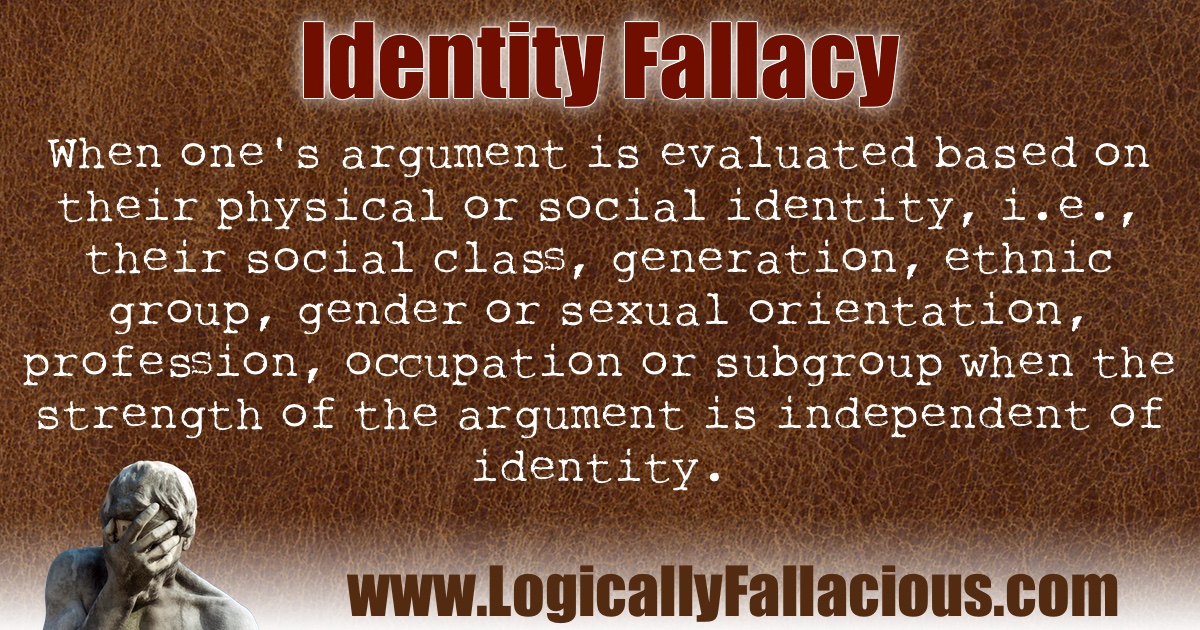(also known as: identity politics)
Description: When one's argument is evaluated based on their physical or social identity, i.e., their social class, generation, ethnic group, gender or sexual orientation, profession, occupation or subgroup when the strength of the argument is independent of identity.
Logical Form:
Person 1 makes argument X.
Person 2 dismisses argument X because of the physical or social identity of person 1.
Example #1:
S.J. Sam: Asian people in this country are systematically passed over in the tech field for non-Asians.
Cindy: Actually, according to most research, employers are biased in favor of Asian technical workers.
S.J. Sam: Unless you are Asian, keep your mouth shut. You can't possibly know the struggles of the Asian community!
Explanation: S.J. Sam is making an empirical claim about a hiring preference for non-Asians. Cindy has refuted the claim that is independent of her physical or social identity (i.e., her ability to refute the argument is not dependent upon her being Asian). S.J. Sam rejects her rebuttal because she is not Asian. In addition, he pulls a red herring by changing the argument to "knowing the struggles" of the Asian community.
Example #2:
The female staff of a large corporation holds a meeting to discuss solutions to reduce discrimination against women at the company. Men are invited but asked just to listen and not contribute to the discussion.
Explanation: The implication here is that men have nothing to add to the discussion. Ideas to reduce gender discrimination are independent of gender, that is, both men and women can have equally valid arguments.
Exception: A requirement for this fallacy is "when the strength of the argument is independent of identity." There are arguments that do rely on identity. For example, claims of feeling and perception could be unique to certain groups.
S.J. Sam: As a gay man, I feel that I am being discriminated against at work.
Cindy: I don't think people at work discriminate against gays.
S.J. Sam: You are not gay. I bet your perspective would be different if you were.
Cindy could ask for evidence of discrimination, which would be reasonable, but she dismisses S.J. Sam's claim when she lacks the insight due to her not being part of the social group (gays).
Tip: Before you exclude any group from your discussions or ignore their arguments based on their physical or social group, make sure you have a solid reason.

References:
This a logical fallacy frequently used on the Internet. No academic sources could be found.
Questions about this fallacy? Ask our community!